School Board shift, Democratic stumbles: 5 takeaways from the Brevard midterm elections
A major School Board shift. Big Republican wins despite growing fractures in the party. And where were the Democrats?
This year's midterm election in Brevard County came with some notable, if not altogether surprising developments, some of which will alter the dynamics of county politics for the foreseeable future.
Tuesday's results also reveal a snapshot of the state of both major local parties, providing some interesting lessons and things to watch over the next two years.
Here are five key takeaways from this year's local election.
Florida election 2022: See results from Brevard County voting
School Board races to the right
Moms for Liberty candidate Megan Wright unseated longtime School Board member Misty Belford in the August primary. With Gene Trent's win Tuesday over Erin Dunne in the School Board District 2 race, the board will now skew sharply right.
Though School Board races are officially nonpartisan, Trent and Wright had the open support of the local GOP, while Dunne was considered a major candidate for the Brevard Democrats.
Now, four Republicans will sit on the board, at a time when the atmosphere surrounding public schools has become bitterly partisan.
District 2 voters were divided over the choice between Dunne and Trent, reflecting the divide over issues on which the candidates took starkly different views, including book challenges, transgender student rights and mask mandates.
With a strong Republican majority, the board is expected to lean solidly conservative on the constellation of wedge issues loosely united as “parental rights” that continue to drive local and national controversy.
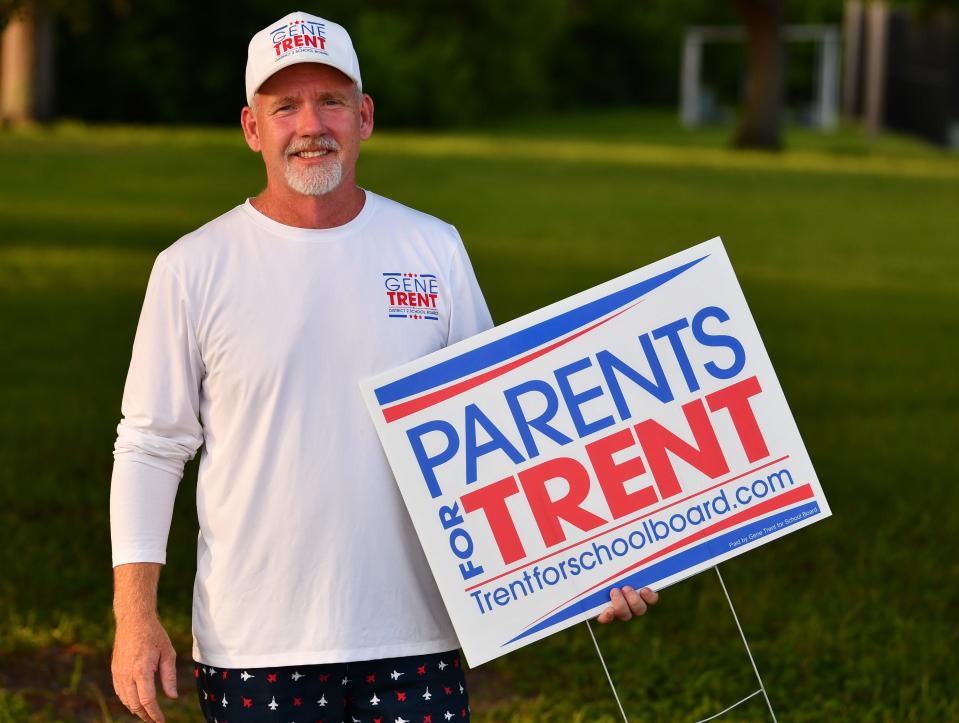
Republicans prevail, despite conflicts
The local Republican Party had a strong showing in the election, in spite of internal conflicts within various factions of the party.
Brevard County Republican Executive Committee Chair Rick Lacey has been under fire from some other local Republicans, including Florida Rep. Randy Fine, Melbourne Mayor Paul Alfrey and Space Coast Young Republicans President Josiah Gattle.
They have criticized some of Lacey's policies and strategies. Yet the GOP swept all the partisan local races on the ballot this year.
Of course, it helps when the GOP voter registration is more than 66,000 ahead of Democratic registration in the county.
More: Brevard County religious institutions walk fine line when it comes to politics
Lacey said he is not concerned about "a handful of dissenters" among the roughly 285 members who are on the Brevard Republican Executive Committee.
He said the proof that the local GOP is taking the right path is in the election results and the increasing GOP voter registration.
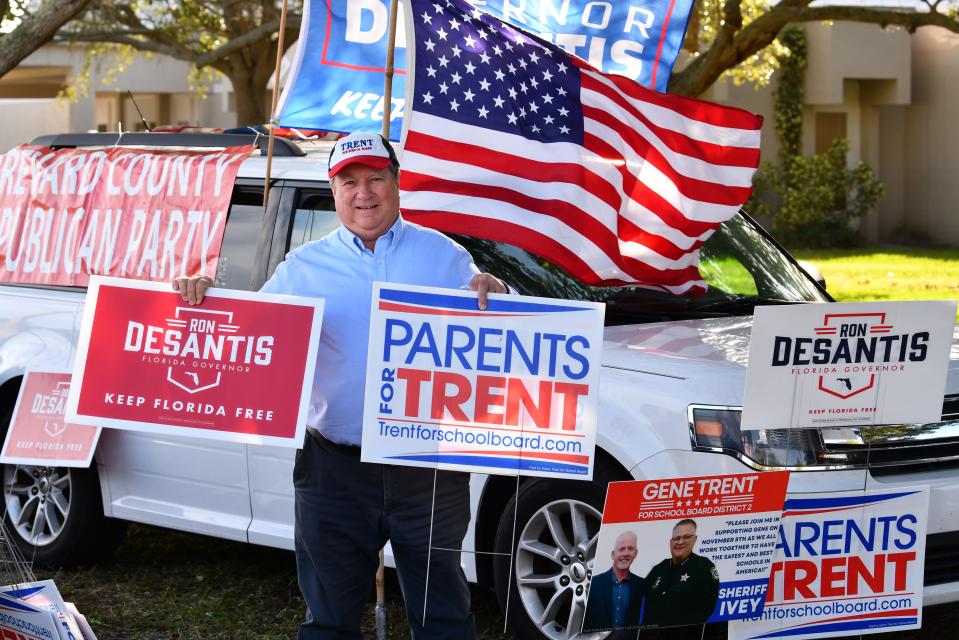
Democrats leave seats open
The Democratic Party failed to field candidates in a number of local races — including for two Brevard County Commission seats in which there was no incumbent.
The Democrats also had no candidates running against Florida Sen. Debbie Mayfield; Florida Reps. Thad Altman and Tyler Sirois; and in all three Canaveral Port Authority elections that were up for grabs this year.
They had some success in nonpartisan races — in which political party affiliation is not listed on the ballot. Notably, Democratic Palm Bay City Councilman Kenny Johnson won reelection against Republican challenger Nathan White, allowing the Democratic Party to keep its 3-2 majority on the Palm Bay City Council.
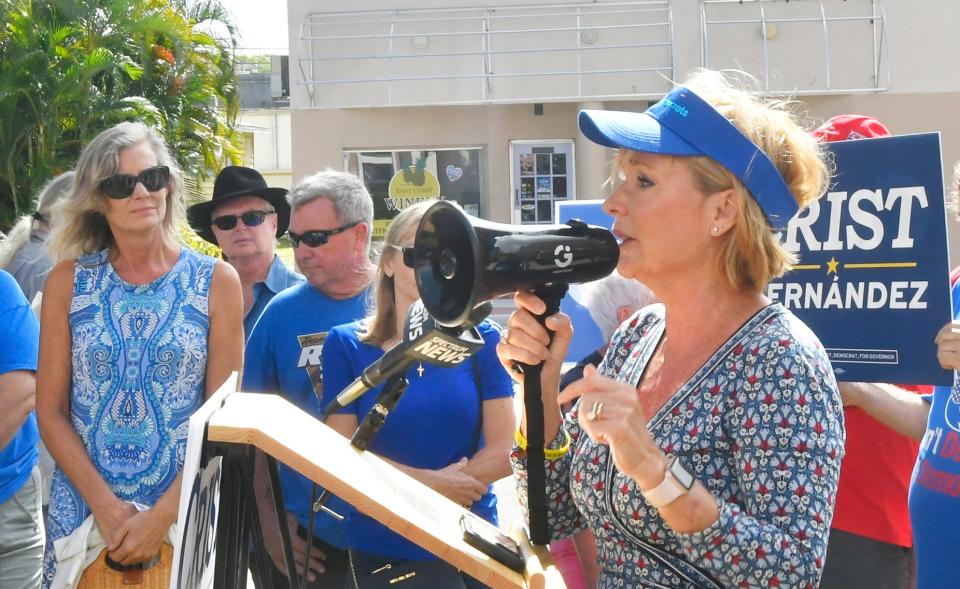
Pamela Castellana, chair of the Brevard Democratic Executive Committee, said retaining the City Council — one of her top priorities this year, she said — was one of the few bright spots in a disappointing night for Democrats in Brevard and across the state.
The committee didn't put much effort into recruiting candidates for some races in order to focus on others they felt they had a better chance of winning, she said.
"Some people were really disappointed we didn't work harder to recruit candidates for races where we were out-registered by 30,000 voters, but that was by choice," Castellana said. "I think it paid off. Although we didn't win School Board, we did win other races that were very critical."
Lacey said the failure to flip the Palm Bay council was his biggest disappointment about the local election results. But Republicans kept their grip on contested partisan races.
U.S. Rep. Bill Posey won his eighth two-year term in Congress, beating his Democratic opponent, Joanne Terry, by nearly 30 percentage points.
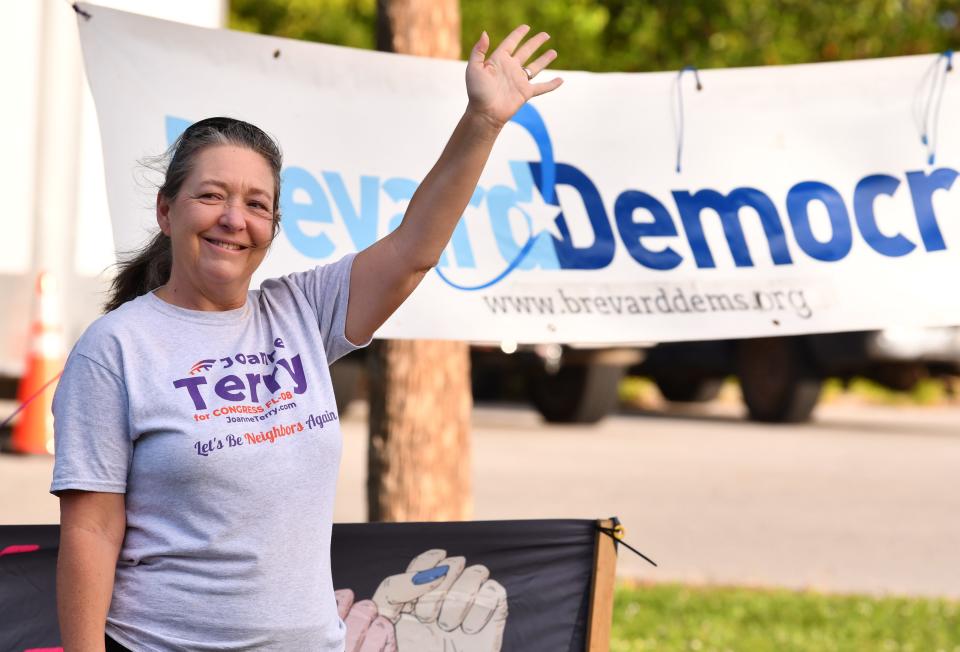
And Florida Rep. Randy Fine won his fourth two-year term in the Florida House of Representatives, beating his Democratic opponent, Anthony Yantz, by more than 11 percentage points — even though a good chunk of Fine's district is in Democratic-leaning Palm Bay.
"Brevard had a pretty big red wave," Lacey said.
Turnout down, especially among Dems
Total voter turnout for Tuesday's election in Brevard was 58.23%, with 268,068 of the 460,372 eligible registered voters casting ballots.
Voter turnout in Brevard was lower than in the last two midterm elections, a slight drop from 2014 (59.47%) and down significantly from 2018 (67.26%).
The breakdown of voting methods indicates that most voters cast their ballots before Election Day. About 34.0% voted through a mail ballot and about 27.2% voted during one of 13 days of in-person early voting. That left just 38.8% of voters who actually voted in person on Election Day.
The number of Republicans who voted in Brevard in this election was 135,375, or 69.1% of eligible Republicans. That was significantly higher than the number of Democrats who voted — 75,963, or 58.1% of those eligible. The figures for no-party-affiliation voters was 51,950 (42.3% of those eligible). Among members of minor political parties, 5,081 voted (47.5% of those eligible).
Democratic turnout was down more than 11 percentage points from 69.3% in 2018.
"We did a much better job of turning out Republican voters than the Democratic Party did in turning out Democrats," Lacey said.
More: Here are the Brevard community election winners, from Barefoot Bay to West Melbourne
Lacey also attributed the numbers to a strong slate of local Republican candidates, plus the popular Gov. Ron DeSantis and U.S. Sen Marco Rubio at the top of this year's ticket.
Castellana said the Democratic Party had a harder time reaching potential voters this cycle due in part to a drop-off in volunteers, which were plentiful in 2018, when motivation was high due to President Donald Trump.
While canvassers had to be more targeted in their efforts this year, turnout was good in those areas, she said, though still not enough to turn some key races.
Many potential Democratic voters also found themselves on the inactive voter list after Florida switched to the nationwide Electronic Registration Information Center voter registration database under DeSantis in 2019, she said.
"That canceled their mail ballots, and voters did not know. It wasn't communicated to them," Castellana said.
Republicans and Democrats also have different preferences when it comes to how they vote.
The greatest number of Republican voted in person on Election Day, followed by in-person early voting and voting by mail.
In contrast, Democrats favored voting by mail, followed by voting in person on Election Day and in-person early voting.
'Ivey League' bump not a sure bet
The endorsement of Brevard Sheriff Wayne Ivey continues its winning record, virtually assuring it will remain the most sought-after in the county — even if it may, in the end, mean more to candidates than voters.
Fourteen candidates on Ivey’s slate — dubbed the “Ivey League” — were victorious on Election Day or during the August primary. Most, however, were incumbents in city or state races, already well-known former officials or running unopposed, making the sheriff’s actual impact unclear.
Ivey’s support may have made a difference in some contested city council races, including Melbourne, Titusville and Cape Canaveral, and arguably gave Trent an edge for School Board District 2 in the general election.
But several key losses show the sheriff’s endorsement is far from a sure thing with Brevard voters.
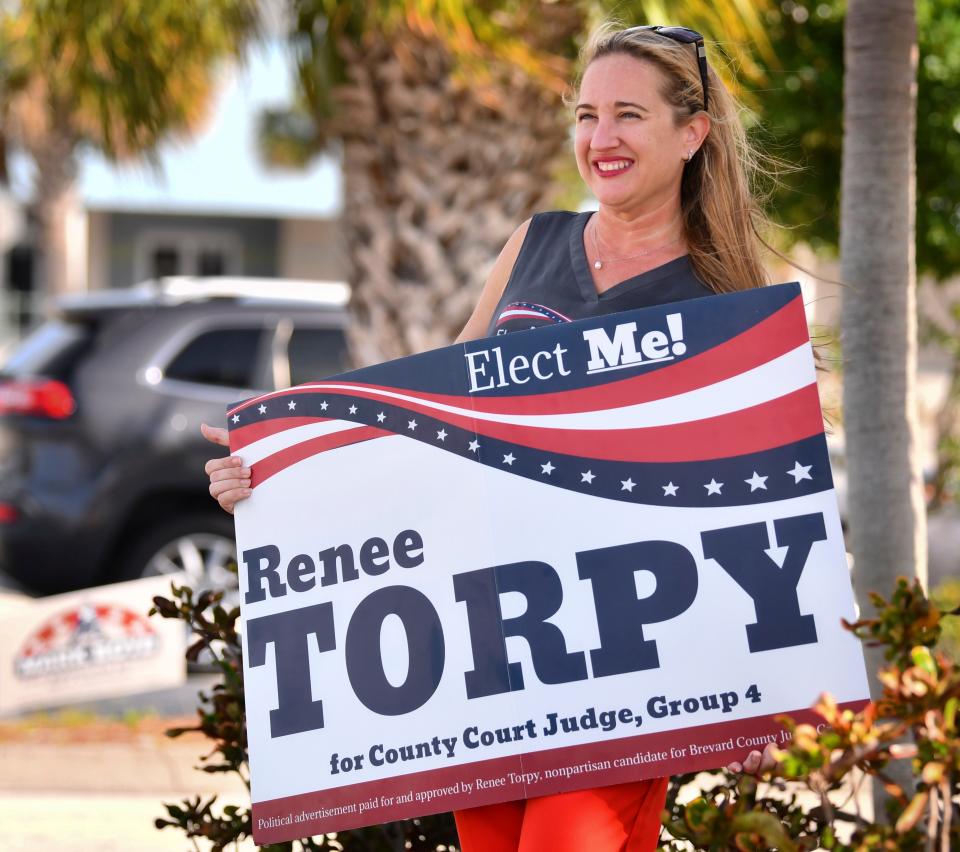
That was especially true for Courtney Lewis, Ivey’s much-hyped candidate for School Board, who lost to Trent and Dunne as part of a four-way primary; and Renee Torpy, a candidate for county judge, who lost despite special campaign support from the sheriff.
Kimberly Musselman, Torpy’s opponent, won by a margin of 52.3% to 47.7%, in spite of accusing the sheriff of election interference in August, a development that suggests the sheriff’s behind-the-scenes pressure on this race may have turned off some voters.
Eric Rogers is a watchdog reporter for FLORIDA TODAY. Contact Rogers at 321-242-3717 or esrogers@floridatoday.com. Follow him on Twitter: @EricRogersFT.
Dave Berman is business editor at FLORIDA TODAY. Contact Berman at dberman@floridatoday.com. Twitter: @bydaveberman.
Support local journalism and journalists like me. Subscribe today.
This article originally appeared on Florida Today: Five key takeaways from Brevard's 2022 midterm elections

